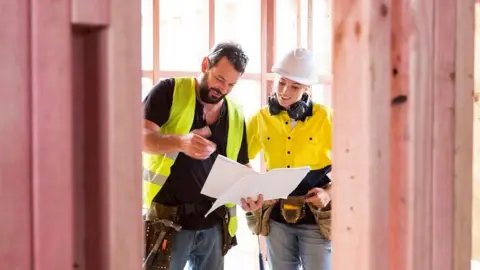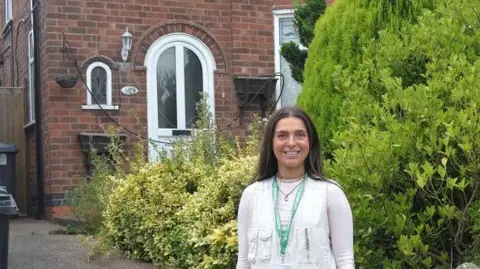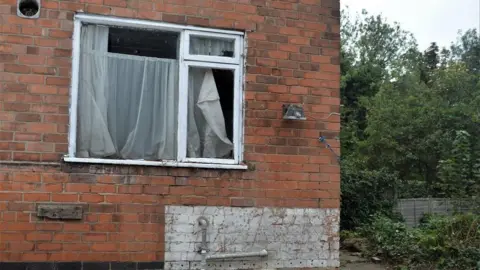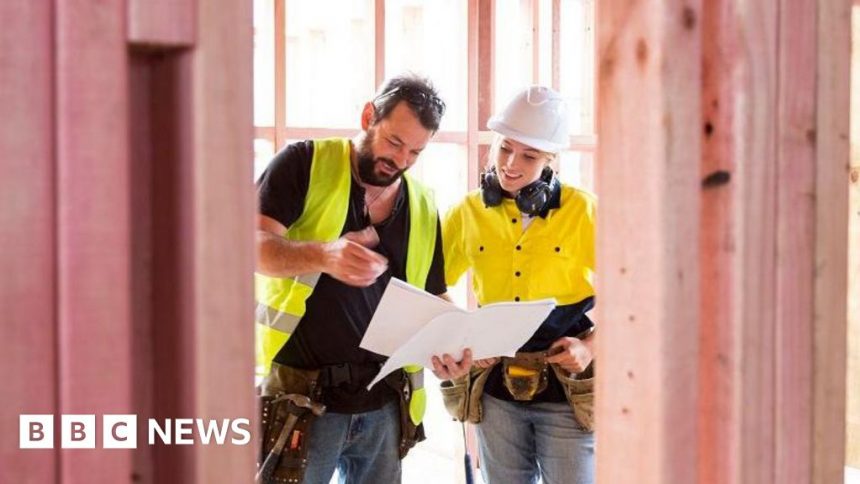Why are we building homes when so many are standing empty?
 Getty Images
Getty ImagesIn an average working day, Claudia Bowring has to play the role of detective, estate agent, family mediator and, occasionally, grief counsellor.
She’s an empty homes officer for a borough council in the suburbs of Nottingham.
There are just short of 700,000 empty and unfurnished homes in England, according to the most recent government figures. Of those, 261,471 are classed as “long-term empty,” meaning no-one has lived there for six months or more.
If all empty homes were brought back into use, the housing crisis would be solved at a stroke and, arguably, the government would not have to build 1.5m new homes.
Unfortunately, it’s not as simple as that. Bringing derelict and abandoned properties back to life can be a long and complex process.
Even finding out who owns properties that have been standing empty for years, or in some cases decades, can be a challenge.
Ms Bowring regularly uses a genealogist to track down the owners of long-abandoned houses on her patch in Rushcliffe.
They are not always happy to be reminded of their responsibilities.
“In some cases, people don’t really understand the seriousness of their property being empty,” she says.
“They think ‘well, it’s my house, there is nothing the council can say or do to make me change my mind.’”
Often homes become empty when the owners pass away, leading to a long administrative process known as probate, when their assets are divided up.
Once that has been settled, families can still be reluctant to part with a property. Claudia Bowring is facing this problem with one of the houses on her patch.
“The children have grown up there, their mum’s died and left them the house, and emotionally they feel quite attached to the property, and me suggesting they should get rid of it or have it for rental is quite difficult to hear.
“They don’t want to see someone else living in the property. They’ve got trees that they planted in the garden when they were children, and they don’t want someone coming in and ripping those up.”
When persuasion fails, the gloves come off.
Like many local authorities, Conservative-controlled Rushcliffe charges extra council tax on homes that have been unoccupied for more than a year, under the Empty Homes Premium brought in by the previous government.
If that doesn’t do the trick, the council can take enforcement action.
It treats abandoned properties as an environmental health issue – derelict properties can be a magnet for vandalism and vermin, harming the quality of life for people living next to them.
In some cases, the council is able to carry out emergency repair work on abandoned homes, and then force a sale at auction to recover its costs. This sometimes results in a windfall for the owners who were so reluctant to sell up in the first place.
Another tool at the council’s disposal are Empty Dwelling Management Orders, which give councils the right to take over and make repairs to run-down private properties that have been vacant for at least two years. They can rent the property out for up to seven years to recover costs.

Rushcliffe has used these tools and others to bring a modest but steady flow of properties back into use since it started taking the issue seriously in 2019.
But it does not have to do this. There is no legal requirement for local authorities to bring empty homes back into use – and some councils choose not to.
Rushcliffe is motivated by a desire to improve the quality of life for its residents and ease the housing shortage.
But unlike many councils around the country, it is not in financial trouble – and does not have a serious homelessness problem.
For some hard-pressed authorities “empty homes work is a luxury,” says housing expert Adam Cliff.
“It is not against the law to own an empty property,” he adds, and “different councils have different priorities”.
As secretary of professional support group the Empty Homes Network, he wants to raise the profile of empty homes among the public and politicians, as an alternative to building on the green belt land.
He argues that there needs to be a central government programme, with a “pot of money for councils to dip into as and when they need money to carry out enforcement,” along the lines of a scheme operated by the Welsh government.

Probate law needs to be reformed to prevent properties “sitting empty in perpetuity,” he adds, but above all he believes empty homes need to be put back in the spotlight as a national issue.
Campaign group Shelter is also concerned about the growing number of privately-owned empty properties, even if its main focus is on getting more social-rented homes built.
Chief executive Polly Neate said: “We desperately need more genuinely affordable social homes and if the government is serious about its commitment to deliver them, it must do more to bring long-term empty homes back into use.
“Converting empty homes is not the silver bullet to ending the housing emergency, but it offers a cost-effective and green way to get more social rent homes built.”
Last year, Shelter produced a 10-city plan to rapidly convert 10,500 empty homes in the first three years of a new government.
But the issue was rarely mentioned during the general election campaign, with only the Green Party putting it in their manifesto.
And so far, there are few signs the Labour government regards it is a priority.
A Ministry of Housing, Communities and Local Government spokesperson said: “Councils have a range of tools at their disposal to bring empty homes back into use, including charging additional council tax on vacant properties.
“We are committed to building 1.5 million homes and delivering the biggest increase in social and affordable housing in a generation. This will unlock thousands of homes and make the dream of homeownership a reality for more people across the country.”
People working with empty homes all seem to have a strong sense of vocation.
Adam Cliff said he first got interested in the issue as a teenager, and wrote his university dissertation on it. Claudia Bowring talks about the satisfaction she gets from putting life back into “dead properties”.
But with little apparent interest from central government, and council budgets being squeezed, they are unlikely to be joined by new colleagues in the field any time soon.







